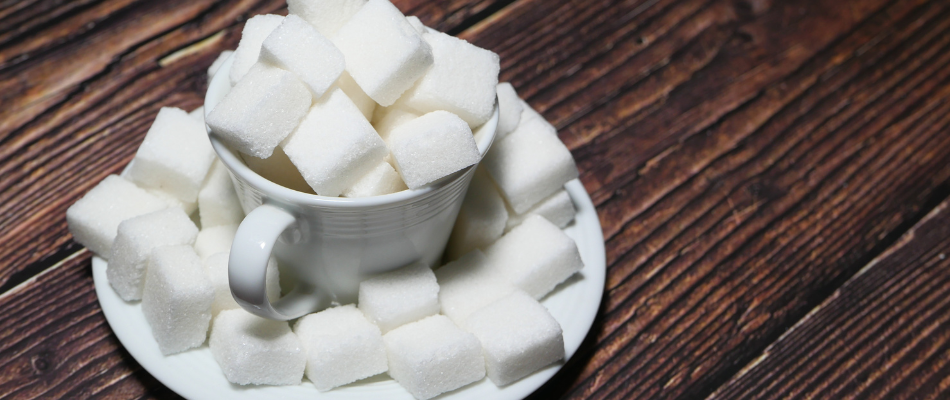Sugar has certainly been a topic of discussion for many years. It’s been blamed for the global obesity crisis and some say that sugar must be cut from our daily food intake entirely. But fruit contains sugar? Should we stop eating that? And what is better than a steaming cup of hot chocolate on a cold winter’s day? In today’s article, we will be looking at exactly that – what is sugar and what are its alternatives?
What is sugar?
Here’s a shocker, sugar is found in all foods containing carbohydrates: fruit, grains, dairy and vegetables – even broccoli has some sugar. But all carbohydrates have three simple sugars: glucose, fructose and galactose. The combination of these is different – for example, milk sugar (lactose) is made up of glucose and galactose. Therefore, saying that you are cutting out sugar, is just not true. Adding sugar is where the problems occur and where you start risking obesity and heart disease.
So, if you have a sweet tooth, and eating an orange does not make a bend in your sugar craving, what should you do without putting your health at risk.
Many alternatives could offer a solution however, moderation will always be the key to good health. Let’s have a look at sugar and some alternatives:
Table sugar
Sugar is a combination of glucose and fructose bonded together, which then forms sucrose. There are no other added vitamins or nutrients. There are also many types of sugar: white, brown and raw. Sugar is lower in calories than honey and is a natural substance. It can produce a burst of fuel (energy) which is followed by a rapid decline (yes, a sugar high which very quickly turns into a sugar low).
Honey
Honey and sugar both comprise glucose and fructose. Remember, glucose is taken up in the body to help produce insulin. The more glucose you consume, the more insulin the pancreas produces and if the fuel is not used, it is stored in fat cells.
Here are some basic honey facts: apart from containing fructose and glucose, honey also has trace amounts of enzymes, amino acids, B and C vitamins, minerals and antioxidants. However, the basis of nutrition found in honey depends on the producers thereof. Honey, however, has a higher fructose concentrate than glucose. It also goes through less processing than sugar and can be consumed raw. It has fewer calories than sucrose (sugar) – about 22 calories per teaspoon.
Both honey and sugar – if consumed in excess – could cause damage to your health.
Artificial sweeteners
Artificial sweeteners are synthetic sugar substitutes but in many cases, they are sweeter and taste sweeter than sugar. They are mostly derived from natural substances like herbs. There are many benefits to artificial sweeteners – they don’t contribute to tooth decay, they have very few calories (about 16 calories in a teaspoon – and remember, a sachet of sweetener is not a teaspoon, it’s less). Artificial sweeteners do not raise blood sugar levels because they do not contain carbohydrates. Common names associated with artificial sweeteners include aspartame, acesulfame potassium, advantame, aspartame-acesulfame salt, sucralose, saccharin, and many more. Why do you need to know these? Simply to see when food products you buy have added ingredients in them (remember, turn the back/pack over and read the ingredients contained in the food you are about to buy).
Novel sweeteners
Novel sweeteners are sweeteners containing tagatose – a natural substance forum in fruit. You are most likely to recognise Stevia – a sweetener extracted from the leaves of the stevia bush.
Sugar alcohols
No, no – not what you think. Sugar alcohols (polyols) are extracted from certain fruits and vegetables but have no ethanol (alcohols) in them. It is not used when preparing food at home but is used in products like chocolate, chewing gum and toothpaste. It adds sweetness but at the same level as table sugar. You might know xylitol? Xylitol is considered sugar alcohol. Sugar alcohol also does not cause tooth decay but – for pet owners – xylitol can be toxic for dogs.
Ultimately, sugar is not healthy food but it is also not the poison it is made out to be. Moderation is always key, whether you consume table sugar, honey or any alternative sweetener. What we all need to avoid is adding sugar to our diets.
It has been made clear in the article, that all carbohydrates have sugar, we do not need to add additional sugar to our lives. And drinking that hot chocolate? Be mindful of adding sugar and maybe choose the sugar-free brand, the taste will be the same (Ok, maybe not the first time, but you will get used to it). The less sugar you include in your eating plan, the less you will need to include it. Our bodies are amazing machines, let us respect that and give them the care they deserve.








